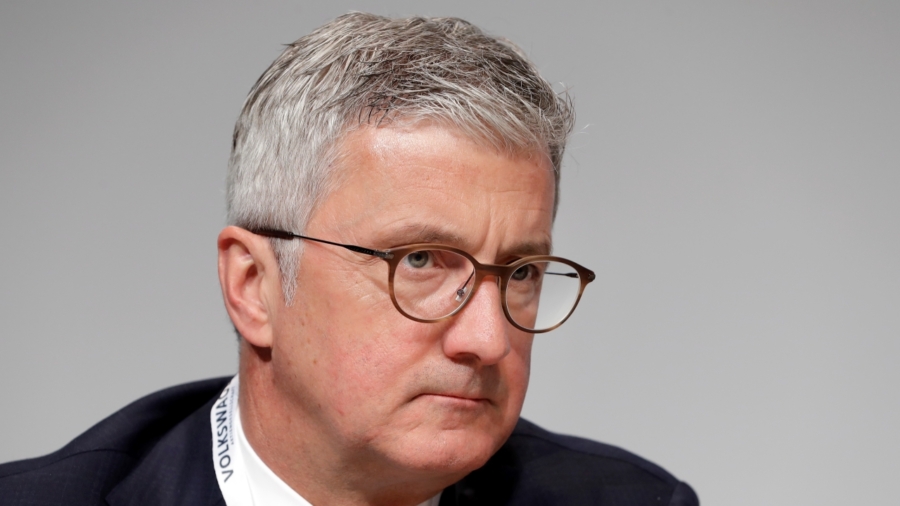FRANKFURT, Germany—The former head of Volkswagen’s luxury division Audi has been charged with fraud in Germany over the sale of cars with software that enabled cheating on emissions tests, prosecutors said on July 31.
Prosecutors in Munich said they charged Rupert Stadler and three others with fraud, false certification and criminal advertising, adding another chapter to the Volkswagen diesel scandal that also led to charges in the U.S. and Germany against Volkswagen’s former CEO, Martin Winterkorn.

The three unnamed individuals are accused of having developed engines used in Audi, Volkswagen and Porsche models that had software that made the emissions controls work better on the test stand than on the road.
Prosecutors alleged Stadler knew about the manipulation in Audi and Volkswagen cars and nevertheless kept selling the models.
Defense attorney Thilo Pfordte said Stadler “intends to defend himself against these charges.” Pfordte said the complex charging document was made available to defense lawyers only Tuesday and a fuller response would come in court once they finished going through it.
The accusations relate to 251,000 Audi vehicles, 71,500 Volkswagen cars, and 112,000 Porsches, sold in the U.S. and Europe.

Stadler found out about the impermissible software by September 2015 at the latest, since that is when Volkswagen was caught by U.S. authorities and the scandal broke, but continued permitting rigged cars to be sold, prosecutors alleged.
The scandal proved costly, resulting so far in 30 billion euros ($33.5 billion) in fines and civil settlements.
Former VW group CEO Winterkorn was charged by prosecutors in Braunschsweig in April. He also faces criminal charges in the U.S. but cannot be extradited, while two other executives were been sentenced to prison terms there.
Stadler, 56, was held for four months in pre-trial detention last year before being released under conditions. A Munich court will decide whether the charges against him proceed to a trial.
Audi said it was cooperating with the investigating authorities and “the presumption of innocence continues to apply to all defendants until the allegations have been clarified.”
It added that “it is in the interests of the employees, the shareholders and the entire company to reach full legal clarification of the issues that led to the diesel crisis… This clarification is the prerequisite for the successful new start.”
By David McHugh

